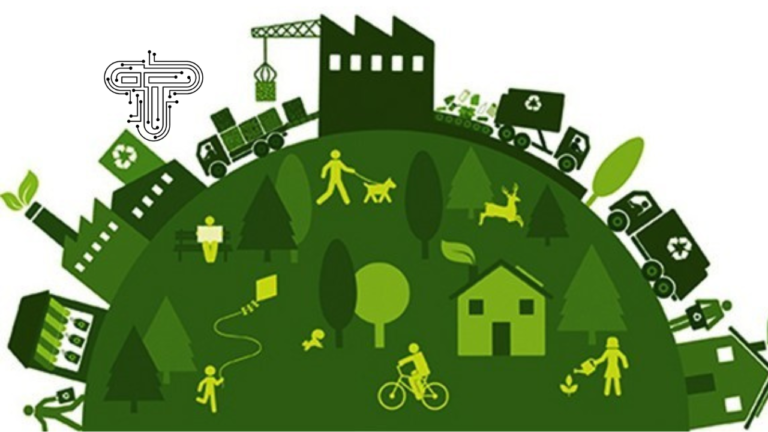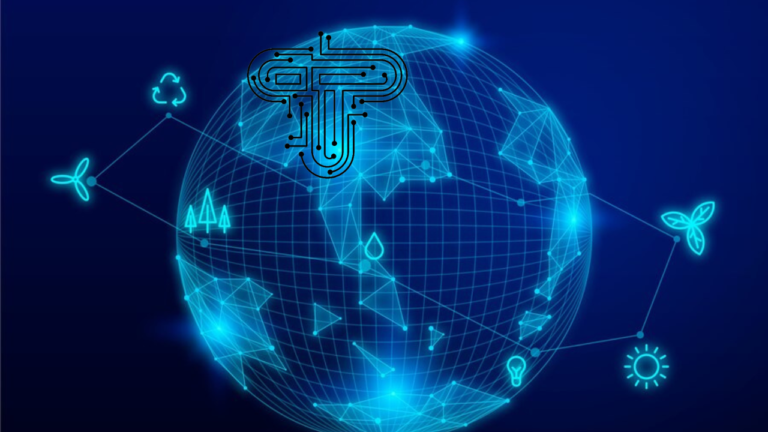The Future of Digital Marketing in the Decentralized Web: Opportunities and Challenges

As we enter the age of Web3, the decentralized internet is transforming how businesses interact with consumers, reshaping everything from advertising strategies to customer engagement. Unlike the centralized Web2 model, where corporations and platforms act as gatekeepers of data and content, Web3 is powered by blockchain technology, token-based economics, and peer-to-peer networks, giving users greater control over their data and interactions. For marketers, this shift presents both exciting opportunities and unprecedented challenges. In this blog, we’ll explore the future of digital marketing in the decentralized web and how businesses can leverage this new paradigm to connect with their audiences.
Understanding Web3 and Its Impact on Marketing
Web3 represents a significant evolution in internet architecture, moving towards a decentralized model where blockchain technology underpins interactions. In contrast to Web2, where platforms like Google and Facebook dominate digital advertising through user data collection, Web3 enables users to control their data and participate more directly in the value exchange.
This decentralized approach impacts digital marketing in several key ways:
- Data Ownership: In Web2, companies gather large amounts of user data to create targeted ads. With Web3, users own their data and can choose whether or not to share it with businesses. This shifts the power dynamic, making trust and transparency more critical for brands.
- Tokenized Economies: Blockchain introduces tokenized ecosystems where users can be rewarded for engagement. This creates new opportunities for customer loyalty programs and more interactive and personalized gamified experiences.
- Decentralized Platforms: With Web3, content platforms are shifting away from centralized authorities. Decentralized social networks, marketplaces, and media outlets reduce reliance on tech giants, allowing marketers to explore more authentic, community-driven outreach.
Opportunities in Web3 Marketing
The decentralized web opens up many opportunities for businesses willing to embrace the future of digital marketing. Here are some of the most promising areas to explore:
Direct User Engagement
Web3 allows brands to engage directly with consumers without intermediaries like social media platforms or ad networks. Businesses can build relationships with users through decentralized platforms, where interactions are often more authentic and community-oriented. This kind of engagement fosters loyalty and helps companies build brand advocates.
For instance, brands can use blockchain-powered platforms to create tokenized rewards for customers who participate in surveys, leave reviews, or engage with content. These rewards can come in cryptocurrencies or NFTs, making the customer experience more immersive and rewarding.
Transparency and Trust
Blockchain technology inherently brings transparency to transactions, making it easier for customers to trust brands. By using smart contracts and distributed ledgers, businesses can prove their ethical practices, whether related to supply chain management, sustainability efforts, or ensuring fair compensation to creators.
In an era where consumer trust in brands is critical, companies that leverage Web3’s transparency features will have a significant competitive advantage. This transparency also extends to digital advertising, where blockchain can track and verify the authenticity of ad impressions and engagement, reducing fraud.
Decentralized Advertising Networks
In the Web2 era, a few large players, such as Google and Facebook, dominate digital advertising. Web3 introduces decentralized advertising networks where advertisers can directly connect with users without intermediaries. These decentralized networks give users more control over which ads they see and allow advertisers to bypass the high fees associated with traditional ad networks.
This shift could also lead to more personalized and relevant ads, as users can choose to share specific data in exchange for better, more tailored experiences. Blockchain-based advertising networks can also use cryptocurrency payments, making transactions faster and more secure.
Tokenized Loyalty Programs
One of the most exciting opportunities in Web3 marketing is the potential for tokenized loyalty programs. Blockchain allows brands to create digital tokens that represent value within their ecosystem. These tokens can be earned through customer engagement, such as making purchases, leaving reviews, or referring friends, and can be redeemed for discounts, exclusive products, or other rewards.
Unlike traditional loyalty programs, tokenized rewards are more versatile. Customers can trade, sell, or even gift these tokens to others, creating a more dynamic and engaging brand experience. This loyalty program is particularly appealing to younger, tech-savvy consumers familiar with digital currencies and blockchain.
Partnering with a Web3 PR Agency
As Web3 evolves, businesses will need specialized expertise to navigate its complexities. A Web3 PR Agency can help brands establish their presence in decentralized ecosystems by developing targeted strategies that resonate with niche communities. These agencies understand the unique dynamics of Web3 platforms and can build trust with early adopters and thought leaders, giving brands a competitive edge.
Challenges in Web3 Marketing
While the opportunities in Web3 marketing are exciting, there are also significant challenges that businesses must navigate:
Lack of Consumer Understanding
Although Web3 is gaining traction, most consumers still don’t fully understand how blockchain and decentralized technologies work. This knowledge gap can make it difficult for businesses to communicate the value of their Web3-based offerings or loyalty programs. To succeed, marketers must invest in education and create easy-to-use interfaces that don’t require deep technical knowledge.
Regulatory Uncertainty
The regulatory landscape surrounding blockchain and cryptocurrencies is still evolving. Marketers will need to stay informed about the legal implications of using decentralized technologies, particularly regarding data privacy, tokenized economies, and advertising. Failing to comply with emerging regulations could lead to significant fines or reputational damage.
New Skill Sets Required
Marketing in the Web3 world requires a different set of skills than traditional digital marketing. Marketers must become familiar with blockchain technology, decentralized platforms, and tokenomics. Additionally, creative strategies must evolve to cater to decentralized communities, prioritizing authenticity and transparency over traditional brand messages.
Decentralized Networks’ Fragmentation
Decentralized platforms are often fragmented and cater to niche communities, making it more challenging for brands to scale their marketing efforts across multiple networks. Unlike Web2, where a single ad campaign could reach millions of users through centralized platforms, Web3 marketing may require a more tailored approach, with campaigns designed for specific decentralized communities.
Read More
Conclusion
The future of digital marketing in the decentralized web is full of potential, offering new ways for brands to connect with their audiences through transparency, engagement, and tokenized economies. However, businesses must navigate regulatory uncertainty, consumer education, and decentralized network fragmentation to succeed in this new landscape.
As Web3 continues to evolve, companies that embrace these changes early will be well-positioned to thrive in the digital marketing landscape of the future. While the shift to Web3 is still in its early stages, the decentralized web will clearly impact how businesses engage with their audiences.






